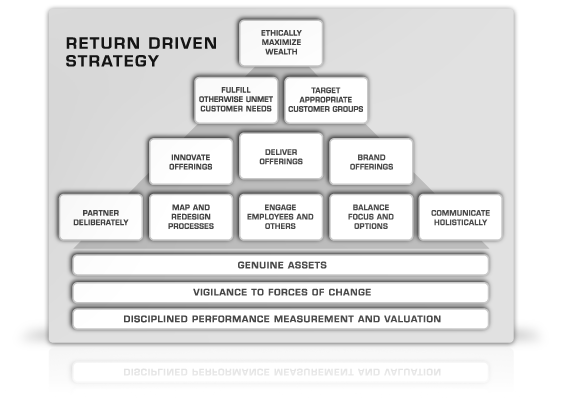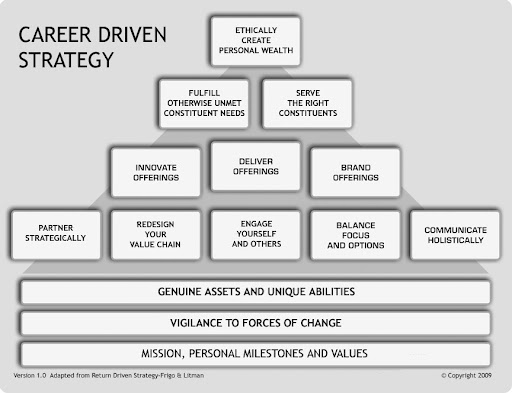In a dynamic business landscape, this framework can mean the difference between fleeting success & enduring impact…
| From the desk of Miles Everson: Happy Tuesday, everyone! Welcome to “Return Driven Strategy (RDS)!” For those of you who don’t know yet, RDS is a pyramid-shaped framework with 11 tenets and 3 foundations. When applied properly, these principles help businesses achieve their organizational objectives. Today, we’ll talk about the application of this framework in various aspects of society. Keep reading below to learn more. |
In a dynamic business landscape, this framework can mean the difference between fleeting success & enduring impact… There’s an unwritten rule in the business world: Only those who anticipate challenges, seize opportunities, and execute with precision rise to the top . Yet, many organizations, regardless of their size or industry, often find themselves stuck in a cycle of incremental gains or, worse, stagnation. What actually separates thriving enterprises from those that are merely surviving? You see, it’s not just about innovation or having deep pockets; it’s also about having a framework that brings every decision and action into alignment with long-term value creation. This is where a game-changing approach comes into play, helping organizations not only aim for success but also sustain it.
The Framework that Transforms Strategy Return Driven Strategy (RDS) is not just a theoretical concept; it’s also a practical and proven framework that has been reshaping how businesses approach growth, risk, and value creation. Developed by Professor Joel Litman and Dr. Mark L. Frigo , RDS provides a roadmap to achieve sustainable success by focusing on delivering superior financial returns while meeting the needs of customers and other stakeholders. What’s more? What makes RDS particularly powerful is its adaptability across different sectors and contexts, from corporate giants to academic institutions. Take a look below!
Why RDS Matters Overall, RDS’s adaptability and focus on long-term value creation make it a powerful tool for organizations across industries. Whether it’s used to steer strategic planning, align risk management with business goals, or educate future leaders, the framework provides a clear path to success. Aside from that? By concentrating on fulfilling customer needs, innovating continuously, and maintaining operational excellence, RDS helps companies navigate the complexities of modern markets with confidence. — In a world where change is constant and competition fierce, having a framework like RDS can mean the difference between fleeting success and enduring impact. By focusing on what truly matters—creating value for all stakeholders—businesses can achieve not just profitability but also purpose-driven growth. Ready to explore how RDS can transform your organization or career? This proven framework offers insights and strategies that can help you take your game to the next level! … and if you’re looking to gain a better understanding of Return Driven Strategy and Career Driven Strategy, we highly recommend checking out “Driven” by Professor Litman and Dr. Frigo. Click here to get your copy and learn how this framework can help you in your business strategies and ultimately, in ethically maximizing wealth for your firm. Hope you found this week’s insights interesting and helpful. Stay tuned for next Tuesday’s Return Driven Strategy! This sportswear company has carved out a place for itself in a highly competitive industry. Learn more about the importance of partnerships in next week’s article! |

Miles Everson
CEO of MBO Partners and former Global Advisory and Consulting CEO at PwC, Everson has worked with many of the world's largest and most prominent organizations, specializing in executive management. He helps companies balance growth, reduce risk, maximize return, and excel in strategic business priorities.
He is a sought-after public speaker and contributor and has been a case study for success from Harvard Business School.
Everson is a Certified Public Accountant, a member of the American Institute of Certified Public Accountants and Minnesota Society of Certified Public Accountants. He graduated from St. Cloud State University with a B.S. in Accounting.




